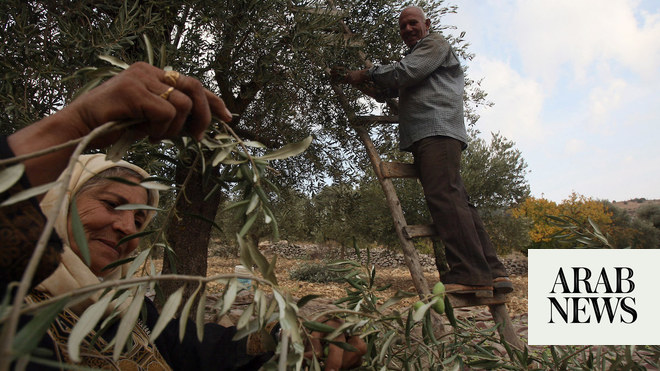
Culture minister underscored the profound importance of the olive tree in Jordanian society
AMMAN: Jordan has nominated its Mehras olive trees for inclusion on UNESCO’s representative list of Intangible Cultural Heritage for the year 2025, Jordan News Agency reported on Monday.
According to the Food and Agricultural Organization, Jordan has some of the world’s most ancient habitats for olive trees.
Olive trees cover approximately 30 percent of all cultivated land in Jordan, constituting 75 percent of fruit trees. The olive trees hold immense significance for Jordan’s economy, environment, and culture.
Jordanian Culture Minister Haifa Najjar highlighted the importance of the tree to Jordanian heritage, drawing attention to its regional and international significance.
The minister underscored the profound importance of the olive tree in Jordanian society, representing both agricultural prowess and the cultural heritage deeply ingrained in the lives of its people.
She commended the collaborative efforts between the Ministry of Culture and national stakeholders in finalizing the nomination dossier for “The Ancient Olive Tree — Al-Mehras” to be presented to UNESCO in Paris.
Najjar noted the ministry’s commitment to documenting and safeguarding elements of intangible cultural heritage and the positive effect of such nominations on Jordan’s cultural presence globally.
The ministry previously secured UNESCO recognition for Jordanian cultural elements such as As-Samer traditional dance and mansaf, a traditional dish.
The ministry has participated in joint Arab nominations to UNESCO, highlighting the interconnectedness of cultural practices across the region. Previous submissions included files on date palm cultivation and Arabic calligraphy.
Looking ahead, Najjar mentioned joint Arab nominations currently under consideration for the 2025 UNESCO list. These encompass an array of practices and traditions, including mud architecture, traditional attire for men, musical instruments such as the oud, and various crafts and skills associated with Arab cultural heritage.











